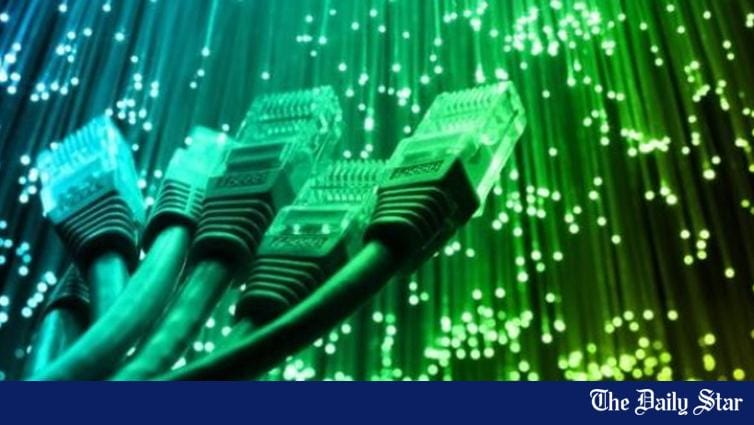Saif
Senior Member
- Joined
- Jan 24, 2024
- Messages
- 15,397
- Reaction score
- 7,874
- Nation

- Residence

- Axis Group


Internet price to drop by 20% at ISP and IIG levels from July
Internet prices at the ISP (Internet Service Provider) and IIG (International Internet Gateway) levels will be reduced by 20% from July this year, said Chief Adviser's Special Assistant for Post, Telecommunications and Information Technology, Faiz Ahmed Taiyeb. Faiz Taiyeb came up with the announc
Internet price to drop by 20% at ISP and IIG levels from July
Published :
May 15, 2025 19:49
Updated :
May 15, 2025 19:51

Internet prices at the ISP (Internet Service Provider) and IIG (International Internet Gateway) levels will be reduced by 20% from July this year, said Chief Adviser's Special Assistant for Post, Telecommunications and Information Technology, Faiz Ahmed Taiyeb.
Faiz Taiyeb came up with the announcement at a press conference held at the BTRC building in Agargaon on Thursday, marking the celebration of World Telecommunication and Information Society Day, according to UNB.
The internet prices at the ISP and IIG levels will be reduced by 20% from July 1, he said. The prices at the consumer level will also be reduced subsequently, he added.
Taiyeb also urged the mobile operators to align with this initiative. "Our goal is to provide quality internet services at affordable prices to citizens."
Shish Haider Chowdhury, secretary to the Information and Communication Technology (ICT), Md Zahurul Islam, Acting Secretary of the Posts and Telecommunications Division and Major General (retd) Md Emdad-Ul-Bari, Chairman of Bangladesh Telecommunication and Regulatory Commission (BTRC) were also present at the press conference.
Published :
May 15, 2025 19:49
Updated :
May 15, 2025 19:51
Internet prices at the ISP (Internet Service Provider) and IIG (International Internet Gateway) levels will be reduced by 20% from July this year, said Chief Adviser's Special Assistant for Post, Telecommunications and Information Technology, Faiz Ahmed Taiyeb.
Faiz Taiyeb came up with the announcement at a press conference held at the BTRC building in Agargaon on Thursday, marking the celebration of World Telecommunication and Information Society Day, according to UNB.
The internet prices at the ISP and IIG levels will be reduced by 20% from July 1, he said. The prices at the consumer level will also be reduced subsequently, he added.
Taiyeb also urged the mobile operators to align with this initiative. "Our goal is to provide quality internet services at affordable prices to citizens."
Shish Haider Chowdhury, secretary to the Information and Communication Technology (ICT), Md Zahurul Islam, Acting Secretary of the Posts and Telecommunications Division and Major General (retd) Md Emdad-Ul-Bari, Chairman of Bangladesh Telecommunication and Regulatory Commission (BTRC) were also present at the press conference.




